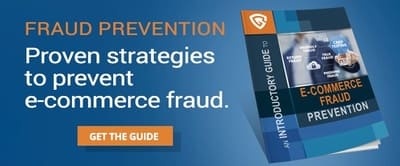Preventing iGaming Chargebacks
The world of iGaming, encompassing online gambling, casino games, and sports betting, has witnessed tremendous growth in recent years. Unfortunately, this growth in revenue has coincided with an increase in chargebacks.
The nature of the iGaming industry makes it particularly prone to payment disputes, but many of these disputes can be prevented with the appropriate tools and strategies in place. Let’s take a closer look at iGaming chargebacks and how merchants can prevent them.
Why iGaming Chargebacks Occur
iGaming businesses are particularly susceptible to chargebacks due to the unique nature of their services. Some common reasons for chargebacks in this industry include:
- Unrecognized Transactions: Customers may not recognize or remember the transactions on their statements, leading them to dispute the charges. This is more common when the merchant’s billing descriptor doesn’t match the name that the customer associates with the transaction.
- Fraudulent Activity: Depending on their business model and security measures, some iGaming merchants may offer an attractive way for fraudsters to turn stolen payment credentials into cash. Bad actors may be able to add money to an online account with a stolen credit card, place a few bets, then cash out into their own bank account.
- Customer Dissatisfaction: Some players might dispute transactions if they're dissatisfied with the outcomes of their bets or gaming experiences. Any form of gambling or betting will inevitably lead to many unhappy customers who have lost money, and this dissatisfaction can lead to a significant number of chargebacks.
The Consequences of Chargebacks
Frequent chargebacks can lead to serious consequences for iGaming merchants. These may include:
 Financial Losses: Chargebacks result in the merchant losing the transaction amount plus chargeback fees. Any costs associated with acquiring and serving the customer have also gone to waste.
Financial Losses: Chargebacks result in the merchant losing the transaction amount plus chargeback fees. Any costs associated with acquiring and serving the customer have also gone to waste.- Additional Fines & Fees: Card Networks and Acquirers may fine merchants whose chargeback ratio exceeds a certain threshold, often around 1%. They may also impose their own additional fee for each chargeback.
- Higher Processing Costs: Frequent chargebacks may lead to increased processing costs. Merchants may be required to use processors that cater to high-risk merchants.
Chargeback Prevention Strategies
Preventing chargebacks is often the most effective way to limit revenue loss. To effectively reduce the occurrence of chargebacks, iGaming businesses should adopt a comprehensive approach that combines identity verification, transparent payment processing, responsive customer support, and possibly chargeback alerts as well.
Identity Verification and Fraud Detection
A cornerstone of chargeback prevention in the iGaming sector is the implementation of robust Know Your Customer (KYC) procedures. This involves collecting and verifying personal information from players during the registration process, potentially even including methods such as authenticating government IDs.
By verifying player identities, iGaming merchants can mitigate the risk of unauthorized account usage and fraudulent activities.
Furthermore, leveraging advanced fraud detection tools and technologies is crucial. Machine learning algorithms and real-time monitoring can help detect suspicious activities like unusual betting patterns, multiple accounts originating from the same IP address, or other potentially fraudulent behavior.
Geolocation verification is also essential to ensure that players are physically located in regions where online gambling is legal, preventing players from using VPNs to bypass geographic restrictions.
Transparent Payment Processing
Maintaining clear and recognizable billing descriptors is fundamental to preventing chargebacks. Merchants who conduct business through multiple websites or apps should ensure that each billing descriptor matches the customer-facing name of the site or app the purchase was made through. Billing descriptors should clearly represent the nature of the transaction, leaving no room for ambiguity or confusion.
Additionally, sending transaction confirmation emails to customers after they make a deposit or place bets is a valuable practice. These emails should provide a detailed breakdown of the transaction, including the date, time, and purpose, reducing misunderstandings and potential disputes.
Customer Support and Dispute Resolution
Responsive and efficient customer support is indispensable for preventing chargebacks. It's essential to offer customer support that is available 24/7 to address customer inquiries, concerns, and issues in a timely manner. Quick and professional responses can prevent disputes from escalating into chargebacks.
In addition to responsive customer support, iGaming merchants should develop clear dispute resolution protocols. Ensuring that the customer support team is well-trained to handle disputes professionally is vital.
 Resolving disputes to the satisfaction of the customer can significantly reduce the likelihood of chargebacks. In some cases, a bit of generosity can not only prevent a chargeback, but gain a repeat customer as well.
Resolving disputes to the satisfaction of the customer can significantly reduce the likelihood of chargebacks. In some cases, a bit of generosity can not only prevent a chargeback, but gain a repeat customer as well.
Proactive communication with customers can also be beneficial. For example, if there is a delay in processing a withdrawal, informing the player and providing an estimated resolution time can prevent frustration and potential chargebacks.
Chargeback Alerts
For iGaming merchants with a chargeback ratio nearing or exceeding 1%, chargeback alerts can be a valuable tool to prevent enrollment in costly monitoring programs that include additional fines and fees. These alerts will briefly pause eligible incoming disputes before they become chargebacks, allowing the merchant to issue a refund instead.
Some alert providers may be able to monitor a merchant’s MIDs individually and adaptively modify their response strategies to ensure none exceed the relevant thresholds. This flexible approach can help to minimize a merchant’s total cost of prevention.
Types of Fraud Detection Tools
In the iGaming industry, where the potential for chargebacks and fraud is substantial, leveraging effective fraud detection tools is critical for merchants. These tools help identify and prevent fraudulent activities before they result in chargebacks. Let's explore some of the key types of fraud detection tools commonly employed by iGaming businesses:
Address Verification Service (AVS)
Address Verification Service, or AVS, is a fundamental tool in the fight against fraud. It compares the billing address provided by the customer during a transaction with the address on file at the issuing bank. If there is a mismatch between the two addresses, it can be a red flag for potential fraud.
Card Verification Value (CVV) Matching
CVV matching is another layer of security in the online payment process. The CVV is the three- or four-digit code on the back of a credit or debit card. When a customer makes a transaction, the merchant can require them to enter this code to prove that they possess the physical card.
CVV matching helps ensure that the card being used is legitimate. If the CVV provided does not match the one associated with the card, it raises concerns about potential fraud.
Risk Scoring
Risk scoring, also known as risk assessment or fraud scoring, is a more complex and comprehensive tool. It involves the use of sophisticated algorithms and data analysis to assign a risk score to each transaction.
The score is calculated based on various factors, including the customer's historical behavior, transaction patterns, IP address, geolocation, and more. If a transaction receives a high risk score, it is subject to closer scrutiny or even automatic rejection.
These fraud detection tools work in tandem to create a robust defense against fraudulent activities and chargebacks. By employing AVS, CVV matching, and risk scoring, iGaming merchants can significantly reduce the risk of unauthorized transactions and fraudulent activities within their platforms.
Conclusion
Chargebacks in the iGaming industry are a complex and challenging issue that can significantly impact merchants. Understanding the nature of chargebacks, their causes, and their consequences is crucial for iGaming businesses. By utilizing proactive prevention strategies, iGaming merchants can mitigate financial losses and safeguard their reputation.
In our next article, we’ll delve further into the world of iGaming chargebacks by discussing how proper documentation can be used to reverse chargebacks and recover lost revenue.



